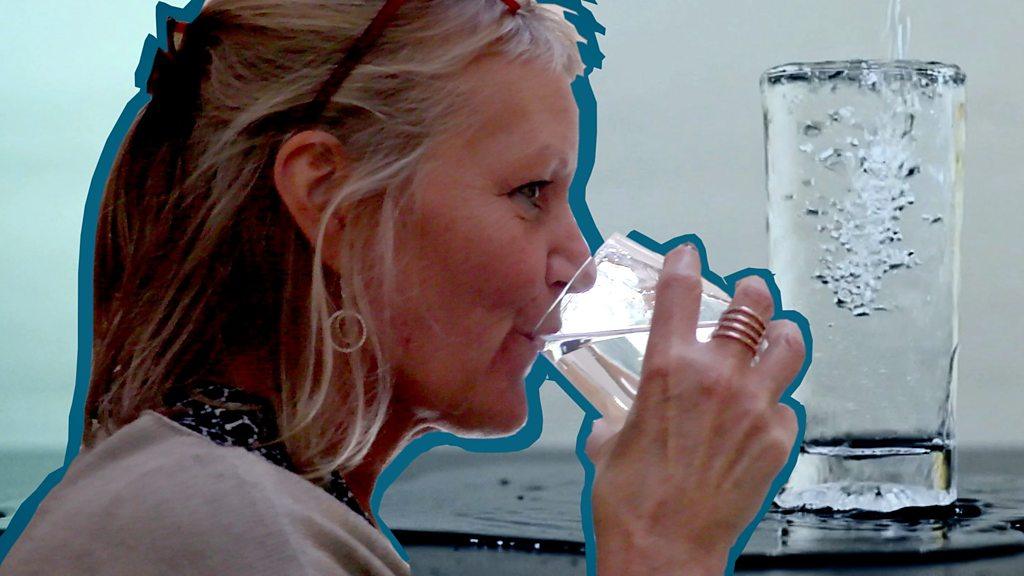NHS staff failed mum who died from drinking too much water
- Published
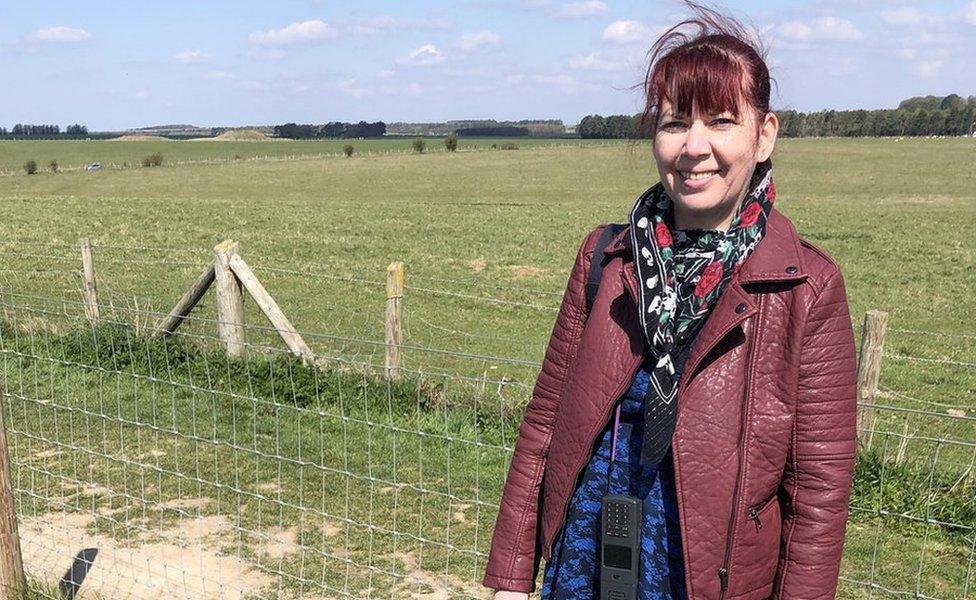
Michelle Whitehead, 45, died from a brain injury after excessively drinking water
The husband of a woman who died from excessively drinking water believes she would still be alive if healthcare staff had monitored her properly.
Michelle Whitehead, a "wonderful mum" of two boys, was detained at a mental health unit following a breakdown.
While there, she started drinking water excessively, then went into a coma, but staff did not realise this until it was too late.
An NHS trust has admitted numerous failings and apologised to her family.
The failings by Nottinghamshire Healthcare NHS Foundation Trust included "inadequate monitoring of Michelle", as "staff were distracted by the use of their personal mobile telephones", which was prohibited on the ward.
After hearing evidence, an inquest jury concluded some of the failings had "probably more than minimally" contributed to her death.
'An amazing person'
The 45-year-old's husband, Michael Whitehead, said: "When Michelle [seemingly] fell asleep, staff should have realised something was very wrong.
"Had they acted earlier Michelle would have been taken to ICU [intensive care unit] and put on a drip. That would have saved her life.
"By the time they realised what was happening, the same course of action was far too late."
Mr Whitehead described his wife as "warm, caring and easy to love".
"Michelle was an amazing person, and the last few days of her life do not represent who she was," he said.
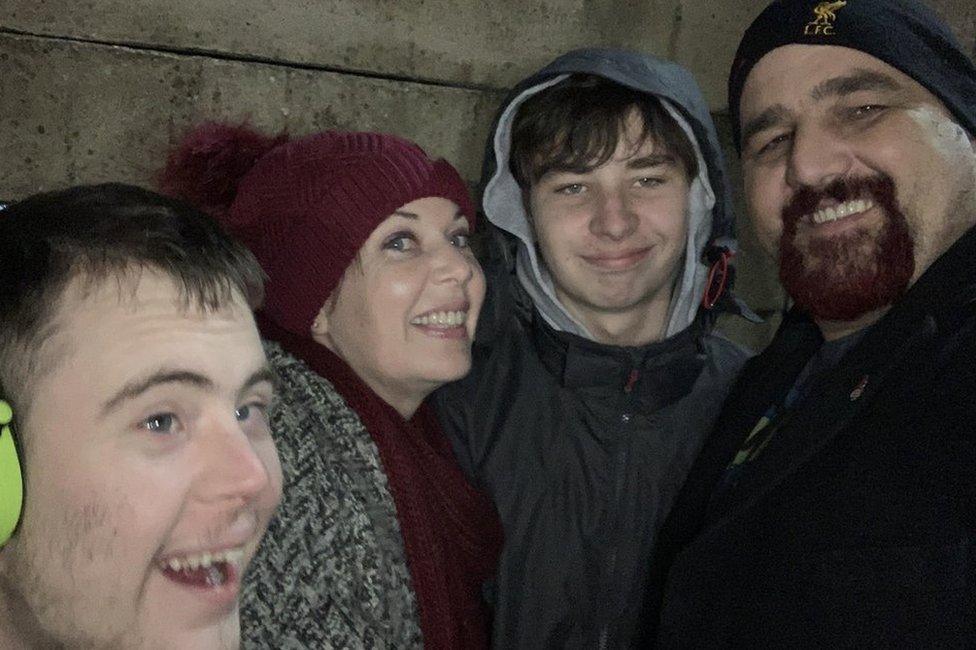
The couple had two sons, and Mrs Whitehead was a full-time carer for one of them
The couple met on a bus home from Nottingham when Mrs Whitehead was 15 and Mr Whitehead was 17.
"She looked through the records I'd just bought, and I fell in love," Mr Whitehead said.
They were together for 30 years, married for 22 years, and lived in the Rainworth area of Nottinghamshire.
Mrs Whitehead had worked as a nursery nurse, but gave this up when one of the couple's sons was born with Down's syndrome. She was then a full-time carer for 19 years.
Mr Whitehead said his wife was "bright, positive and determined".
However, she had an acute mental breakdown in 2018 and was admitted to Millbrook Mental Health Unit in Sutton-in-Ashfield.
She had another breakdown in 2021, and was admitted to the unit again on 3 May 2021.
"She essentially lost all awareness of where she was and what was happening to her. It was a total breakdown from the person she normally is," Mr Whitehead said.
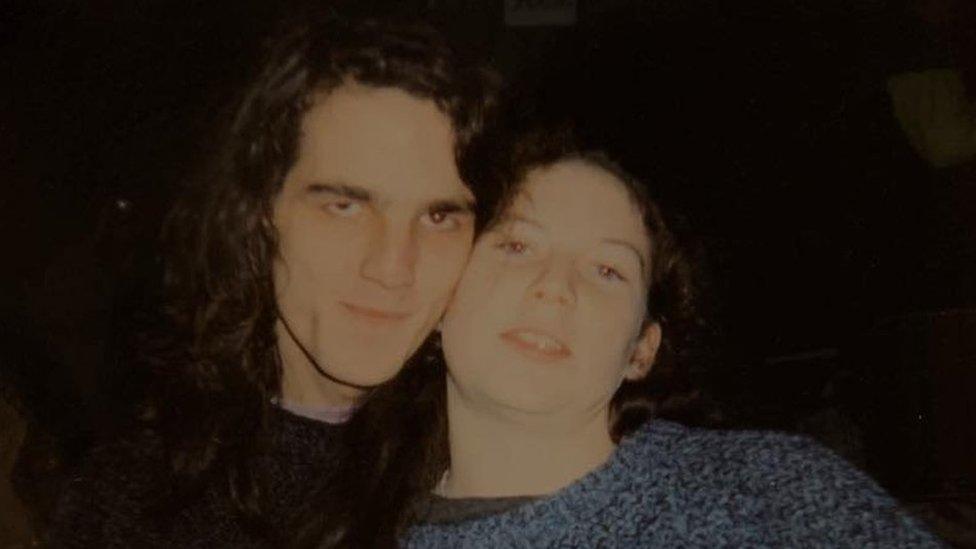
The couple had been together since they were teenagers
The inquest heard she was observed to be excessively drinking water while at Millbrook on the afternoon of 5 May 2021.
The investigation into Mrs Whitehead's death found her excessive water consumption was due to psychogenic polydipsia, which is well documented in patients with psychiatric disorders.
However, staff failed to diagnose her with the condition at the time, and she was allowed to continue having unsupervised access to water in her room.
Mrs Whitehead was then administered with tranquilisers to calm her down, and seemingly fell asleep, the inquest was told. However, she actually became unconscious and went into a coma.
The inquest jury heard staff did not realise anything was wrong until more than four hours later, when a healthcare assistant noticed a change in her breathing.
She was later admitted to King's Mill Hospital, where she died on 7 May 2021.
The inquest jury found, on the balance of probabilities, Mrs Whitehead died because she became acutely over-hydrated, leading to severely low sodium levels, causing swelling in the brain.
This then caused her brain to be fatally injured.
Her medical cause of death was hyponatraemic encephalopathy, acute hyponatremia and psychogenic polydipsia.
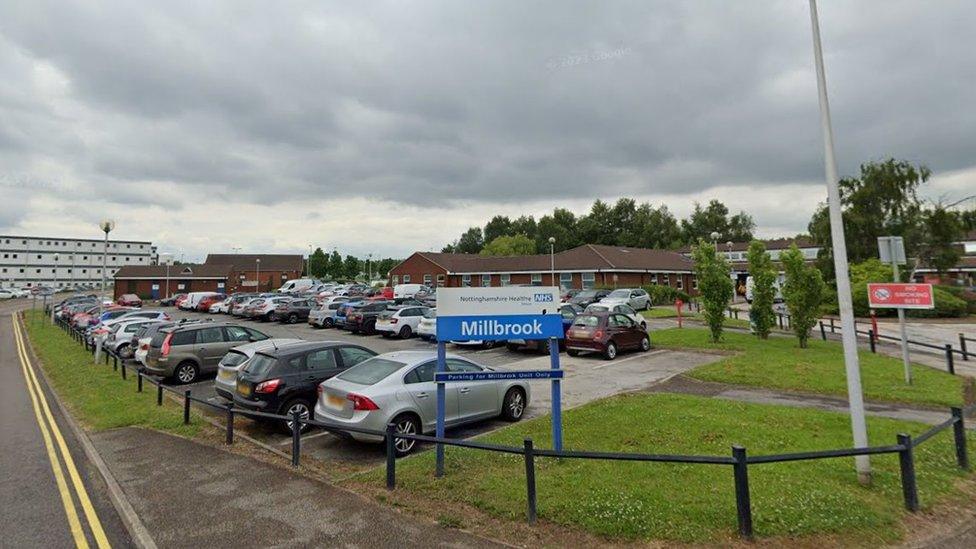
Millbrook Mental Health Unit is run by Nottinghamshire Healthcare NHS Foundation Trust
Nottinghamshire Healthcare NHS Foundation Trust admitted eight failings in the care Mrs Whitehead received while at Millbrook for the second time.
These were:
Staff failing to adhere to the NHS trust's policy in relation to when Mrs Whitehead was tranquilised
Incomplete observations after she was tranquilised, meaning she was not adequately assessed at any time before concerns were raised about her breathing. This led to "missed opportunities to detect her likely deteriorating level of consciousness" and get her admitted to hospital sooner
Medical and non-medical staff not understanding the policy when a patient is thought to be asleep
A doctor discontinuing observations about three and a half hours after she was tranquilised, which should not have happened until she was able to walk around again
Inadequate monitoring by staff performing observations as they "were distracted by the use of their personal mobile telephones, an activity which was prohibited on the ward"
Nursing staff failing to respond promptly to a change in her breathing, and a delay of 15 minutes to place her in the recovery position
A delay in the duty doctor arriving on scene as he did not respond promptly to mobile telephone contact from the switchboard
A 10-minute delay in letting paramedics enter the building
In its narrative conclusion, the inquest jury said the failure to comply with policy after Mrs Whitehead was tranquilised - in particular by failing to monitor her consciousness level, leading to missed opportunities to detect her likely deteriorating level of consciousness and seek earlier hospital admission - had "probably more than minimally" contributed to her death.
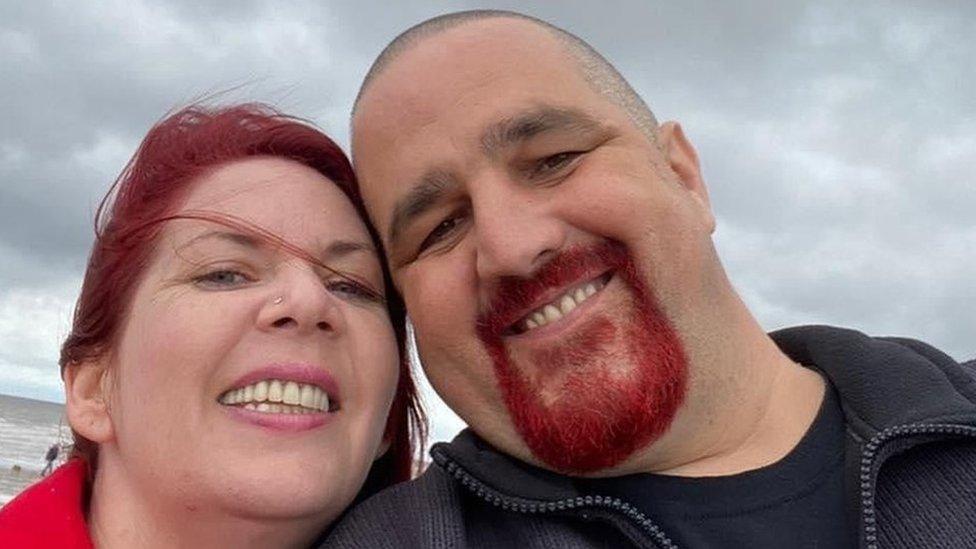
Michael Whitehead said his wife loved beachcombing and wanted them to retire to the coast together
The jury also concluded the NHS trust's system for training staff on the use of rapid tranquilisation was not "sufficiently robust" to ensure policy was followed consistently, and this had also "probably more than minimally" contributed to Mrs Whitehead's death.
Following the inquest, coroner Laurinda Bower sent a prevention of future deaths report to the chief executive of the trust, because she was concerned more people could die "unless action is taken".
The action she requests includes making sure staff are able to detect and manage psychogenic polydipsia.
Ifti Majid, chief executive of the trust, said in a statement to the BBC: "On behalf of the trust, I once again extend our sincerest condolences and apologies to the family and friends of Michelle Whitehead for their loss.
"We are considering the findings of the jury and the coroner. We acknowledge that there were aspects of care which were not of the quality they should have been and will address the concerns raised so that the experience for patients now and in future is improved."

Follow BBC East Midlands on Facebook, external, on X, external, and on Instagram, external. Send your story ideas to eastmidsnews@bbc.co.uk, external.
Related topics
- Published25 October 2019
